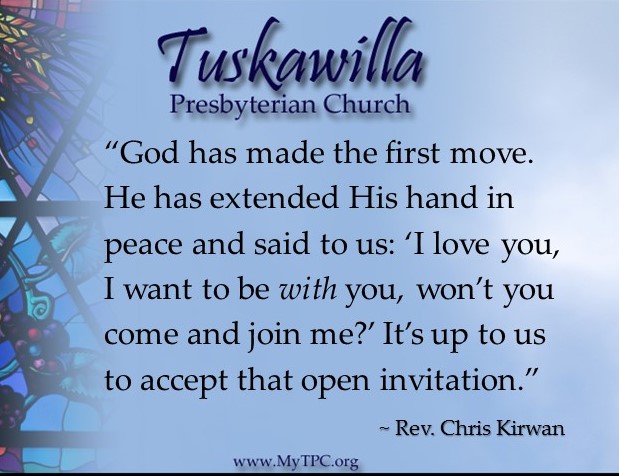 What do you think the most important single word ever uttered or written down in the Bible would be? Is it God? Jesus? Resurrection? Eternal? Creation? Or, maybe even love? The list and possibilities could go on and on.
What do you think the most important single word ever uttered or written down in the Bible would be? Is it God? Jesus? Resurrection? Eternal? Creation? Or, maybe even love? The list and possibilities could go on and on.
The most important word in the Bible is: with.
Why is that word so important? Let’s begin by taking a look at some of the supporting evidence for this conclusion.
John’s Gospel clearly states: “In the beginning was the Word, and the Word was with God, and the Word was God.” (John 1:1 NRSV) The word was not “for” God or “from” God, it was “with” God.
In the book of Genesis, we find that chapter 1, verse 20 proclaims: “Let the waters swarm with living things, and let birds fly above the earth up in the dome of the sky.” (Genesis 1:20 CEB) Again, this emphasizes cohabitation and a mutual symbiotic relationship with the waters of the world and the creatures in them; both, essentially, needing one another for thriving and surviving.
In Luke’s Gospel, the angel Gabriel appears to both Mary and Joseph and declares to Mary, “Greetings, favored one! The Lord is with you.” (Luke 1:28 NRSV) Once again, that simple, yet ever-so critical word is present, stressing a more personal presence.
The importance of such a seemingly simple word should not be overlooked. Its meaning and its impact is far-reaching and deeply entrenched.
With is very intentional and is an extremely strong foundation to the basis of relationships. In fact, it is essential in and throughout all relationships in life. With also has a sense of closeness and depth to it that is hard to attain with other words.
Specifically, if we are thinking of the notion of building up and nourishing a relationship, then with is essential. There are other words that can be used to describe relationships that include to, for, and even by. Yet, these do not seem to imply the same intimacy or closeness that one gets and understands in regards to being with.
It’s imperative is that we are with people properly. Meaning, being with someone does not mean just being in the same room as them. If you are in the same room but on your phone, reading a book or watching TV, then you are not truly with the other person.
Being with means looking someone in the eyes, listening to their words, reading body language and being able to see the presence of God within them. Our own body language, mannerisms and our attention send the message of whether or not we are truly with someone else.
These guidelines also apply to Jesus. I am sure it’s within God’s power to do anything and everything He pleases. That much we know. So when it came to God’s presence with and among us in the form of Jesus Christ, what message do you think He sent? Was God saying, “Here, I have sent my son and His only goal and primary purpose is to die for your sins”?
That assessment would be a little off-base. That, yes, may have been a reason, but it wasn’t the sole purpose for Christ’s presence. I feel it was also for God to be with us.
We have the luxury of knowing, understanding and loving Jesus Christ, who just so happens to be both fully God and fully human. This creates a wonderful opportunity for us to relate to Christ. He was tempted just as we were, yet He was without sin. He needed to drink the same waters that grace the world today in order to survive. He needed to eat, to breathe and to have relationships established with many other people. Just like us! This truly and amazingly was God actually with” us!
Doubters of God’s existence and presence in this world often ask, “Why did God do this to me?” or “Why did God not get this or do that for me?” Well, to and for are words that imply someone is at a distance—they are not words that are intended for two people in a close relationship. The truth is, God has and desires a much deeper and closer relationship with us than that.
God is indeed with us.
God has made the first move. He has extended His hand in peace and said to us: “I love you, I want to be with you, won’t you come and join me?” It’s up to us to accept that open invitation, no matter what the risk may be.

